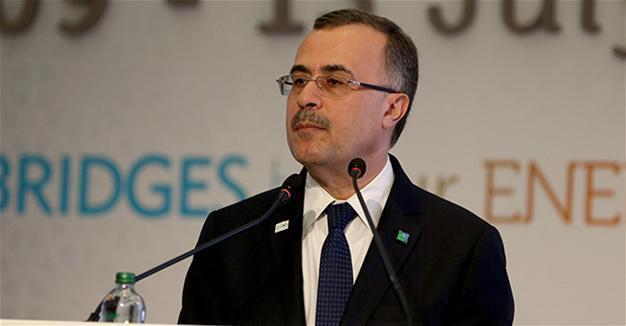Oil, gas key to world energy for ‘decades to come’: Saudi Aramco boss
ISTANBUL-Agence France-Presse

Oil and gas will remain central to the world’s supply of energy for decades to come, the chief executive of giant producer Saudi Aramco said on July 10, urging market players to ensure energy security by bolstering faltering investment.
Oil major bosses and energy ministers are meeting at the World Petroleum Congress in Istanbul, with the outlook clouded by the low price of crude oil, currently trading at around 45 dollars a barrel compared with a peak of over 145 dollars in 2008.
This has driven down investment to record lows, while oil majors are also grappling with the new importance of unconventional sources like shale and renewables.
The decision announced last week by Volvo to phase out production of petrol-only cars from 2019 in favor of electric has also sent ripples of concern around the industry.
The chief of the Saudi Arabian energy giant, Amin Nasser, said that there is “widespread agreement” that even as the world moves to greater use of renewables over fossil fuels, “petroleum will continue to be the heart of the energy mix.”
He said that while “expectations for alternatives are through the roof,” history shows that energy transitions to different sources tend to be “long and complex processes”.
“The renewables still have major challenges, they do not compete with oil. It takes a long time for new fuels to seize market share,” he said, noting that electric cars would also still need time to take off.
With the global economy forecast to grow sharply as populations increase, he said it is a “mistaken assumption that alternatives will be rapidly deployed”.
“Rising demand for all sources of energy -- with oil and gas at the heart of the mix -- will be the reality for decades to come,” he said.
But he warned that the tens of billions of dollars lost in deferred and cancelled investment since the current spate of low oil prices began risked harming consumers in the long-run.
“Financial investors are shying away from making much-needed investment,” Nasser said, warning that without higher investment levels “energy transition and energy security may be fatally compromised.”
“New discoveries are also on a major downward trend,” Nasser added, urging industry players to create a “compelling narrative” for increased investment.
The downturn has blown a major hole in the budgets of key OPEC and non-OPEC producers, reliant on robust oil prices for healthy finances.
Nasser confirmed that to counter the sliding investment trend, Saudi Aramco plans to invest some $300 billion in the coming years and was also looking at diversifying its own business.
“The continuing market volatility is a powerful reminder that we must transform our own business model,” he said.
Nasser said that by 2030 Saudi Arabia should be “nothing less than a powerhouse” for solar power and Aramco would play a full part in this.
The chief executive of Royal Dutch Shell, Ben van Beurden, said the sector faced a huge challenge in the years to come, needing to meet “higher energy demands for a growing population” while also reducing greenhouse emissions in line with the Paris Agreement on combating climate change.
He hailed the fact there have already been “huge advances” in the field of renewables, with costs predicted to fall further for wind and solar energy.
 Oil and gas will remain central to the world’s supply of energy for decades to come, the chief executive of giant producer Saudi Aramco said on July 10, urging market players to ensure energy security by bolstering faltering investment.
Oil and gas will remain central to the world’s supply of energy for decades to come, the chief executive of giant producer Saudi Aramco said on July 10, urging market players to ensure energy security by bolstering faltering investment.